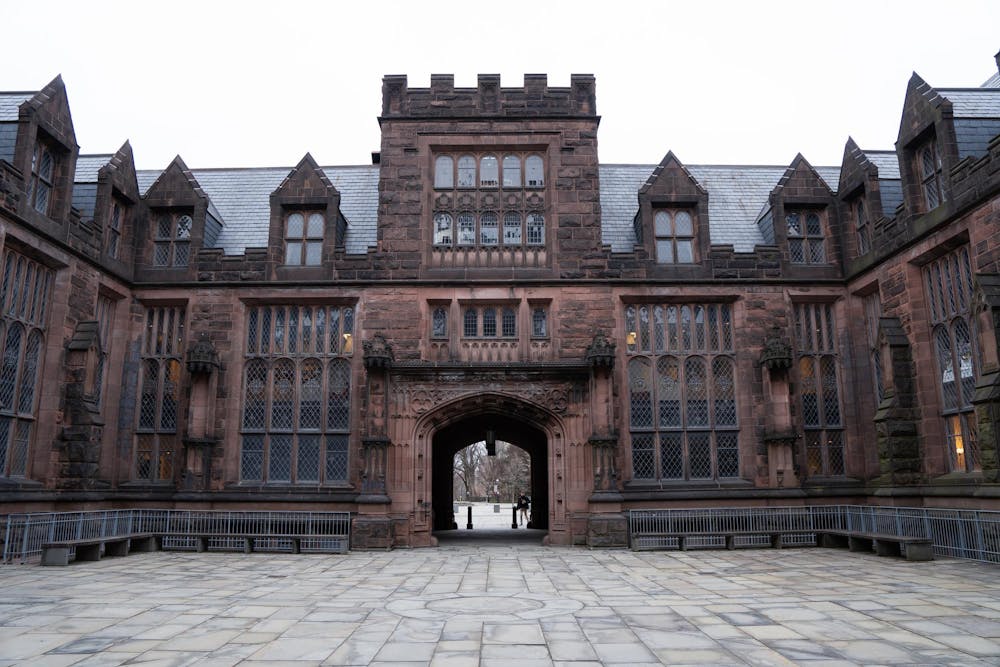University faculty have approved five new minors for the academic year, and 16 certificates have transitioned into minors as part of Princeton’s shift away from certificate programs to minors.
New minor programs have been approved in bioengineering, European studies, history of art, mathematics, and religion. Several language minors were relabeled from their certificate programs, with the Spanish and Portuguese and the French and Italian programs dropping the phrase “language and culture” from their names. The Near Eastern languages certificate has also been spun off into multiple individual language minors for “higher visibility,” according to Dean of the College Michael Gordin.
“I’m very happy seeing even more minors available this year, not only in the form of converted certificates but also as creative new offerings that highlight the range of the curriculum, both within and across departments,” Gordin wrote in an email to The Daily Princetonian. “This creates much greater visibility for the scope of studies that are open to our entire student body.”
Professor Bryan Lowe, the director of undergraduate studies in the Department of Religion, pointed to student demand as a key factor in the decision to propose a minor in Religion.
“Every year at the academic expo, a lot of students ask whether we have a certificate or a minor, so we are thrilled that we can finally say yes,” Lowe wrote in an email to the ‘Prince.’ In February, an op-ed published in ‘Prince’ also advocated for the creation of a religion minor.
“Some of the biggest lecture classes at the school are in the religion department, and that made me really think that people want to study faith as an academic discipline,” said Anna Ferris ’26, a columnist for the ‘Prince.’
Ferris, who is minoring in Religion and intends to pursue a Master of Divinity after graduation, is eager to join a community of researchers deeply engaged in religious studies. “The religion minor is a great way for me to ease into working really deeply with theology and with religion, not just as a personal life framework, but as part of my academic life too,” she told the ‘Prince.’
In other departments, the proposal for a minor was led largely by faculty.

“Once it was possible to have minors, the department then looked at it and said that would be a good idea,” said professor János Kollár, the director of undergraduate studies for the Department of Mathematics. Currently, 15 students have opted to pursue a math minor, which Kollár notes is “especially good,” given the prerequisites in advanced calculus and linear algebra.
Currently, the math minor allows students to meet the requirement of four 300-level or higher math department courses either by concentrating on a specific area of interest or by taking a broader approach.
For Kasia Kirnie ’26, the new history of art minor offers a chance to carve out dedicated time to engage deeply with art history.
“As a molecular biology major, I have fairly rigorous course requirements which can make it hard to find time for other subjects in the humanities,” Kirnie said in an interview with the ‘Prince.’ “When I found out that the department was exploring a minor option, I was excited that I could devote my time more seriously to pursuing art history.”

Students have also expressed that the flexibility departments offer in fulfilling minor requirements enables them to more effectively balance their work between their major and minor fields of study.
“In lieu of independent work, the history of art minor includes a 400-level course requirement, which is extremely helpful to me as a STEM major, as I can fit the course requirements into my schedule far more easily,” Kirnie said.
Departments with existing minor programs have also moved to enrich their offerings for students in the minor with more events and opportunities. Philosophy, one of the first minors to be approved, has garnered strong interest with more than 15 students spread across the junior and senior classes.
“We include students minoring in philosophy in invitations to events for philosophy majors to the extent that that is feasible,” professor Benjamin Morison, chair of the philosophy department, wrote in an email to the ‘Prince.’ One such event is the annual “Princeton and Beyond” dinner, where a distinguished undergraduate alumnus from the philosophy department returns to share how they have applied philosophy in their career and daily life.
The minor in Humanistic Studies is graduating its first class of students this year under a “refreshed curriculum” that “beckons to students whether they’re humanities majors or not,” according to professor Esther Schor, the chair of the humanities council. Schor also noted that faculty have “overhauled Humanistic Studies” in the past couple of years to give students “a lively and intimate community” that includes mentorship and fellowship opportunities.
The faculty overseeing the new minor programs have expressed an interest in pursuing similar avenues to develop their programs over time.
“This is the first year, both for us and the students,” Kollár said. “It makes sense to look at [the minor] after the first cohort and maybe make some changes — we are trying to make it very flexible at the moment.”
As the certificate program gets phased out over the next two years, the Class of 2025 will be the first cohort to graduate with minors. In the meantime, students who enroll while certificates are still offered will have the option to pursue up to two minors or a combination of minors and certificates.
“I’m delighted that they’re expanding the minor program,” Ferris said. “They call it a well-rounded liberal arts education for a reason, and that’s because you should have the freedom to study anything and everything that piques your interest.”
Sena Chang is a News contributor for the ‘Prince.’
Emily Leon is a News contributor for the ‘Prince.’








